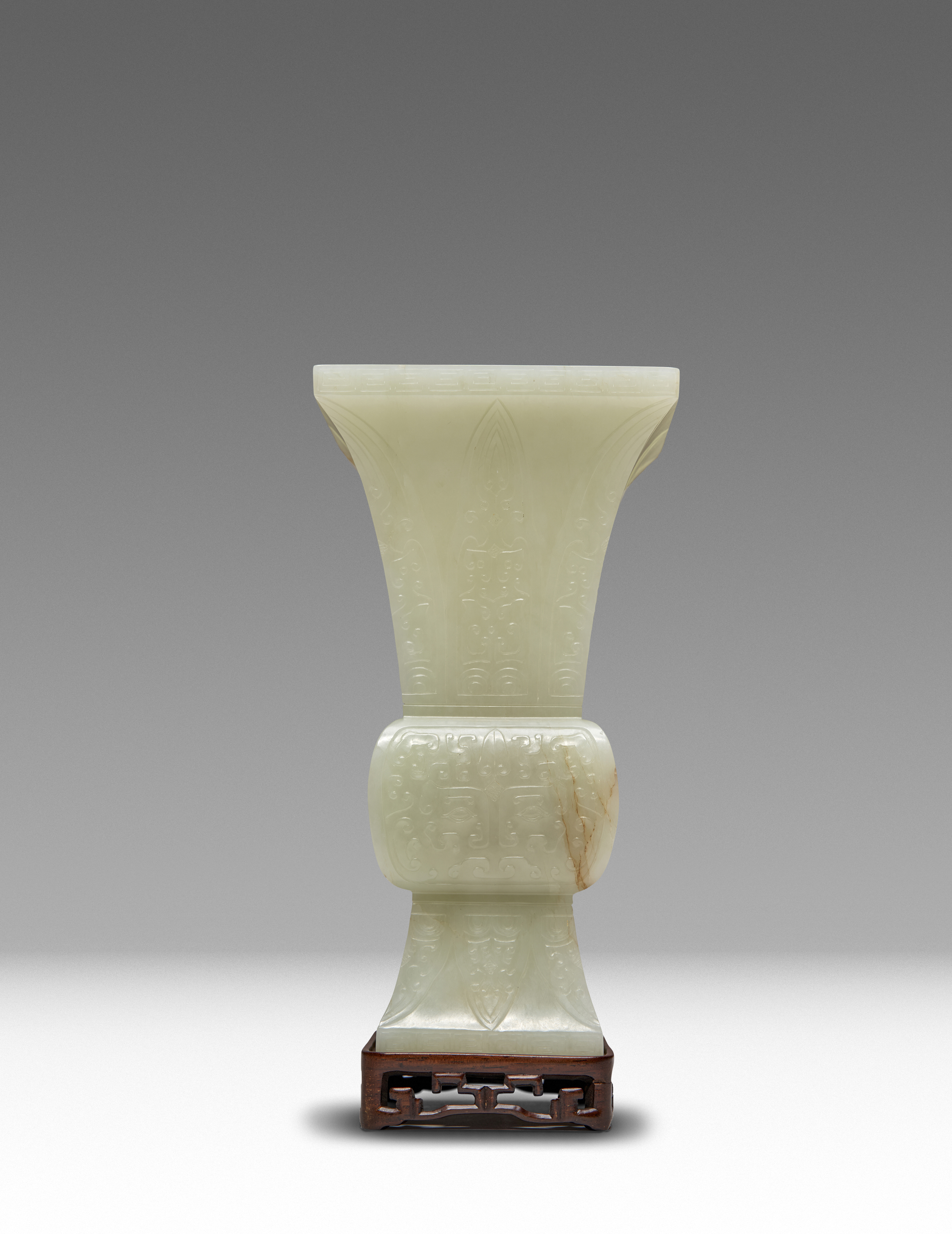Fine Chinese Paintings and Works of Art - 17th May 2022
Lot 415
A RARE CHINESE IMPERIAL PALE CELADON JADE ARCHAISTIC VASE
Estimate £10,000 - £20,000 | Hammer £250000
+ Buyers Premium
Description

A RARE CHINESE IMPERIAL PALE CELADON JADE ARCHAISTIC VASE, FANGGU
FOUR CHARACTER QIANLONG YU WAN MARK AND OF THE PERIOD 1736-95
Carved in low relief, the central section with elaborate taotie masks set between bands of plantain leaves to the trumpet neck and spreading base, the interior incised with a poem and two seals which read hui xin bu yuan and de chong fu, the mouth and foot decorated with key fret borders, the stone with slight cloudy inclusions and russet veining, with a four character mark reading Qianlong yu wan to the base, with a paper label for the collection of Queen Maria of Yugoslavia and for Spink & Son Ltd, together with a reticulated wood stand, 20.5cm. (2)
Provenance: by direction of the executors of the late Sylvia Quance (d.20th September 2020). Formerly from the collection of Queen Maria of Yugoslavia (1990-61), from the collection of Gordon W Quance LLM (1931-2017), purchased from Spink & Son Ltd., London, on 17th July 1963, a copy of the invoice is available.
Cf. The Refined Taste of the Emperor: Special Exhibition of Archaic and Pictorial Jades of the Ch'ing Court, National Palace Museum, p.79, no.11, for a related jade fanggu with poetic inscriptions, see also Compendium of Collections in the Palace Museum, Jade 10, Qing Dynasty, p.104, no.73, for another example.
The Qianlong Emperor is known to have been fascinated with the past and is remembered as a passionate collector of antiques, the poem inscribed on the vase was composed by the Emperor Qianlong, dated to the yisi year (1785).
The poetic inscriptions can be translated as follows, 'This precious jade comes from Hetian and has been carefully carved into a gu-shaped vase. Modern designs are too vulgar to use, and so instead I have imitated an archaic style. It is a rare shape with taotie mask designs. The vase was once used as a drinking vessel during the Shang and Zhou dynasties, whereas I now use it to enjoy flowers'.
The seal reading hui xin bu yuan, can be translated as 'enlightened mind not far', and the seal reading de chong fu, can be translated as 'sign of virtue within'.